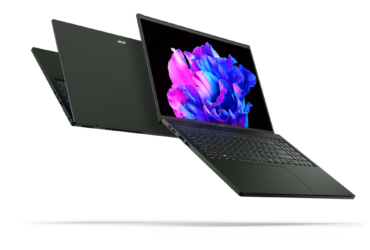Facebook and Bain & Company on Tuesday released findings from their study entitled Riding the Digital Wave: Southeast Asia’s Discovery Generation which looks at how digital consumers are reshaping e-commerce in the region. The study found that increasing choice, improved internet penetration and rising affluence will continue to drive more online spend in Southeast Asia.
Global consultancy Bain & Company revealed that the region grew 2.8X from 90 million digital consumers in 2015 to 250 million digital consumers in 2018. It is estimated that by 2025, there will be 310 million digital consumers in the region. By then, online spending will outpace the growth of digital consumers by a factor of three. In Malaysia, the number of digital consumers is expected to grow by 2.7x from 2018 to 2025, in a market that’s estimated to be worth USD3.4 billion.
The study also found that 58 percent of the region’s digital consumers are 15 years old and above (Data: 2018). The emerging middle class will account for 70-80 percent of the growth of digital consumers by 2025. Average spend per digital consumer in the region is expected to grow 3.2x from 2018 to 2025.
That said, online retail in the region still only accounts for just 3 percent of total retail sales. Countries like China are way ahead at 23 percent. This means, Southeast Asia has the potential to grow by 8x to catch up with the leaders.
The market has become a new battleground for businesses looking to expand in the diverse region. To succeed, companies need an omni-channel strategy that combines offline and online touch points.
The Discovery Generation
Hence, discovery is all-important—about 70 percent of respondents said they do not know what to purchase or where to purchase before they shop online. Interestingly, more than 50 percent say they learn about new products and brands via social platforms.
The region’s shoppers showed a strong preference for omni-channel, with over 80 percent comparing prices across online platforms and in-store before making a purchase decision. In Malaysia, the influence of social media is the strongest—58 percent of Malaysians use social channels to discover new products.
The “discovery generation” shows openness to new brands, with over 40 percent having tried an online store they have never heard of in the past year.

“There is no longer just one way to shop and nobody shops the same way twice. The key takeaway is that designing for discovery is absolutely crucial, given that customers engage with a business through multiple channels at the same time,” said Nicole Tan, country managing director of Facebook Malaysia.
In Malaysia, 70 percent said that they are open to try other brands or will buy from multiple brands when shopping online. Tan revealed that there is also no distinction between Tier 1 and Tier 2 Malaysian shoppers in terms of habits, preferences and omni-channel shopping behaviours. Tier 1 is defined as Malaysian shoppers who live in megacities. Meanwhile, Tier 2 are Malaysian shoppers who live in smaller cities.

The fragmentation of the online retail market means businesses of all sizes, especially specialty brands and not just the large brands, have a significant opportunity to compete on a larger scale in Southeast Asia.

Gwendolyn Lim, partner at Bain & Company gave the example of the US where small, insurgent digital-first brands have continued to take market share from larger brands.
She said while large brands need to “build new muscles” to compete in the changing face of retail, insurgent brands use a different approach to capture the hearts of today’s online shoppers. By having a compelling founder’s story with a purpose or emotional narrative, offering unique and personalised products, selling affordable luxury, and having a direct-to-consumer business model, insurgent brands continue to claw at the market.

What’s clear is that the level of loyalty is low. Malaysian consumers on average visit 4.2 different websites to shop. There is no dominant player in the e-commerce, as consumers buy whenever and from wherever they want.
While discounts can help acquire new customers, they don’t necessarily build loyalty. As discovered in the study, 48 percent of Malaysian consumers don’t wait for sales or promotions to buy things they want.

So, how does a brand build lasting loyalty? Creating customer rewards through loyalty programmes, it was revealed, is imperative. Respondents with a loyalty programme said they were 1.5x times more likely to be a promoter than those without. Loyalty programme members were also 45 percent more likely to make recommendations across categories. Additionally, 25 percent are more likely to have higher purchasing frequencies across categories and 20 percent more likely to have higher spending across categories.
That aside, there is nothing more important than getting the basics right—like selling a quality product or service and offering excellent customer support. Lim gave the example of leading e-commerce platform Shopee, who withholds payment to sellers until orders are successfully fulfilled as well as offer other benefits such as free delivery.
Shopee also employs what it calls “experiential e-commerce” – creating sticky content like mini games and gamification features as well as livestreams.
Brands that want to win in the ever-evolving omni-channel consumer journey will need to understand what customers want in their category, solve customer needs and pain points, customise loyalty, all while delivering with consistency, Lim said.
The Riding the Digital Wave: Southeast Asia’s Discover Generation study surveyed 12,965 respondents across Indonesia, Malaysia, the Philippines, Singapore, Thailand, and Vietnam, and interviewed 30+ CEOs and venture capitalists in the Southeast Asian region. The Facebook-commissioned study is a follow-up to the 2018 study on Emerging Middle Class in the region.









